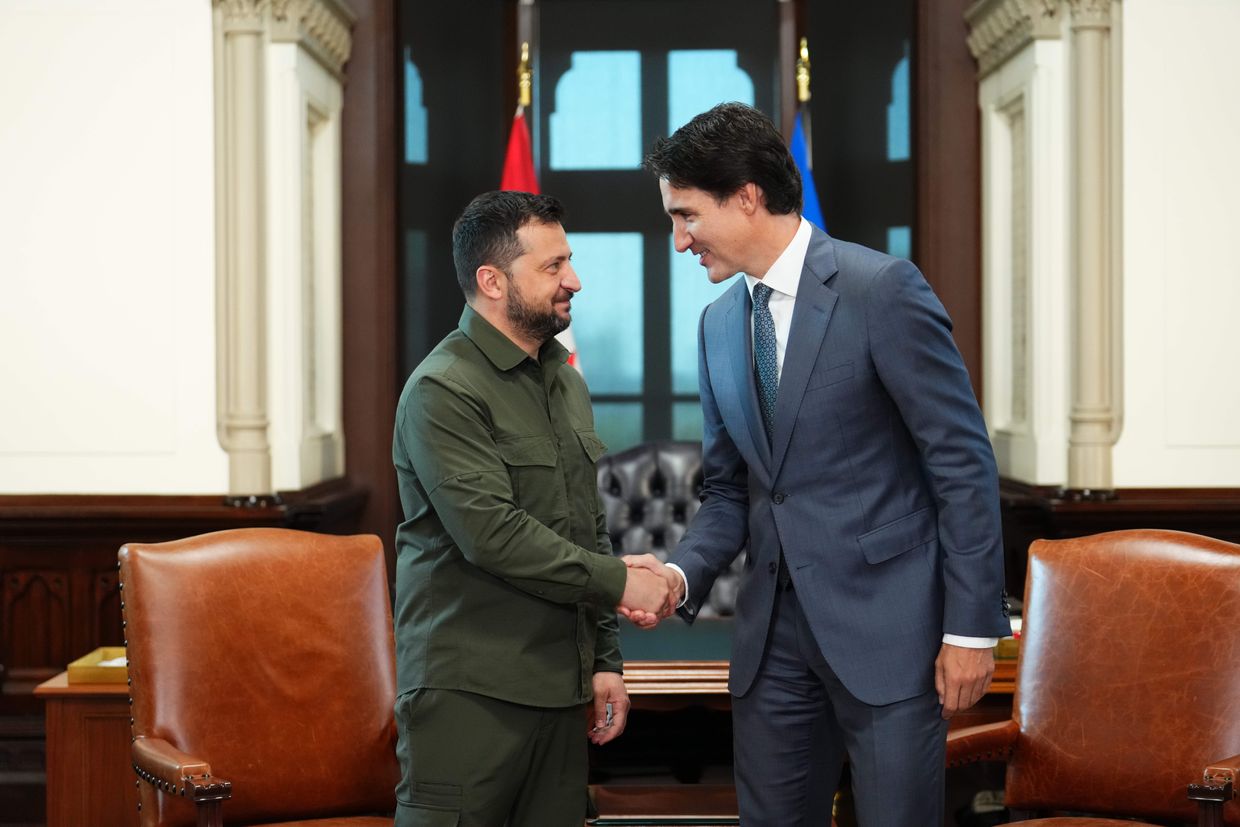Canadian House Speaker apologizes for honoring Nazi unit veteran during Zelensky's visit

Canada's Speaker of the House Anthony Rota apologized on Sept. 24 for honoring a man who fought for a Nazi unit in World War II during a Ukrainian delegation's visit .
Rota praised 98-year-old Yaroslav Hunka, a Ukrainian-Canadian from Ontario, during President Volodymyr Zelensky's visit to Ottawa, calling him a war hero "who fought (for) the Ukrainian independence against the Russians, and continues to support the troops today."
Hunka, who attended the event, had been part of the First Ukrainian Division, a voluntary unit that was under the command of the Nazis. He received two standing ovations in both Zelensky and Canadian Prime Minister Justin Trudeau's presence.
Rota's statement was criticized by Jewish groups, who said Hunka had been a member of a Waffen-SS unit.
The Friends of Simon Wiesenthal Center, an organization dedicated to studying the Holocaust and combatting anti-semitism, said Hunka's "crimes against humanity (as part of the unit) during the Holocaust are well-documented."
“In my remarks following the address of the President of Ukraine, I recognized an individual in the gallery. I have subsequently become aware of more information which causes me to regret my decision to do so,” Rota said in a statement.
“I particularly want to extend my deepest apologies to Jewish communities in Canada and around the world. I accept full responsibility for my actions.”

"This initiative was entirely my own, the individual in question being from my riding (district) and having been brought to my attention," he added, clarifying that neither other parliamentarians nor the Ukrainian delegation were informed of Rota's plan to honor Hunka.
The Canadian Prime Minister's Office confirmed that Rota's decision to honor Hunka was entirely his own, and that neither the Office nor the Ukrainian delegation were informed.
The 14th Waffen Grenadier Division of the SS was formed in 1943. It was composed largely of Western Ukrainian and Slovak volunteers and was renamed the First Ukrainian Division before surrendering to the Western Allies in 1945.
The unit has been accused of murdering Polish and Jewish civilians but has never been found guilty of war crimes by a tribunal.
While some ethnic Ukrainians fought under the Nazi command, millions more served under the Soviet Red Army against Nazi Germany.
Others were members of the Ukrainian Insurgent Army, a faction that fought the Axis, the Soviets, and the Polish resistance on various occasions during their existence.











